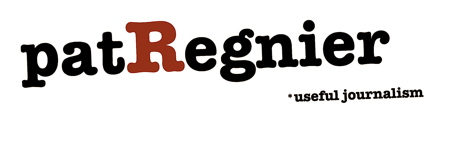April 30, 2001
Time Atlantic
It isn't easy interviewing British historian Niall Ferguson. One very simple Q. can elicit 10 solid minutes of A. Ferguson gallops from an explanation of the differences between the economies of imperial Britain and NASDAQ America to the corrupt fortune Prime Minister William Gladstone made from his investments in Egypt in the 19th century and on to Ferguson's own loathing of sport-utility vehicles. "The fact that family cars are becoming trucks," says the Calvinist-reared Scot, "is a grotesque expression of what the U.S. economy is doing."
Some clever, loquacious people are said to think in paragraphs, but Ferguson seems to think in books. Very, very big books. Just 37 years old, the Oxford don has already produced a 1,000-plus-page history of the Rothschild banking dynasty and a 460-page account of World War I called The Pity of War. By the standards of history, Ferguson's books are wild best sellers, enough to win him an $860,000 three-book deal. Now here's The Cash Nexus (weighing in at 420), which was meant to be a history of bond yields but expanded into a sort of Professor Ferguson Explains It All for You. Ferguson surveys 300 years of political and financial history to argue, contrary to Marx, that capital is not history's irresistible force. Instead, the economy as we know it was shaped by war, which consumes so much money that it's pretty much the reason taxes and bonds were invented.
If this all sounds like heavy sledding, sometimes it is. But Ferguson, who has moonlighted as a newspaper columnist, carries the reader through with his lucid writing and a knack for counterintuitive, even outrageous, argument. The Cash Nexus ends with a brief for more militarism, especially from the rich U.S. "We've got economic globalization very much on a 19th century model," Ferguson says. "But there isn't a global policeman with the kind of interests Britain had then."
Q. How does a historian get interested in bond yields?
A. It came about because of my history of the Rothschild dynasty. For the Rothschilds, all political information had financial implications. A revolution meant bond yields would go up 5 points, and war meant they'd go up even more.
Q. What can yields tell us?
A. The origins of World War I look completely different when you look at them through this lens. The war only hit the markets two weeks after the assasination of Archduke Francis Ferdinand in Sarajevo, so until that point the origins of the war haven't begun. And anyone who says they began in the 1870s when German unification makes war inevitable is basically talking nonsense.
Q. You're concerned that the U.S., unlike the old British Empire, is economically and politically isolated. Is that really dangerous?
A. The danger isn't to the U.S., and that's the problem. The U.S. can afford to be another planet in its own eyes. I think one of the reasons intervention was so late in Rwanda was that people couldn't see the point of risking "our boys" in...where's that? Large parts of the world are degenerating into anarchy, and the consequences are not felt by Americans but by Africans.
Q. Why aren't more academics better writers?
A. There's this sense that if your books are readable they must be facile. People who bought The Pity of War expecting tales of life in the trenches would have been shocked. It's very analytical. But I suffer from a compulsion to explain. History is a public subject, and it only lives if it's read and discussed.
Q. Does being well-paid change how you work?
A. It would have been impossible to do the Rothschild book in five years without research funds. We'd be having this conversation in 2015.
